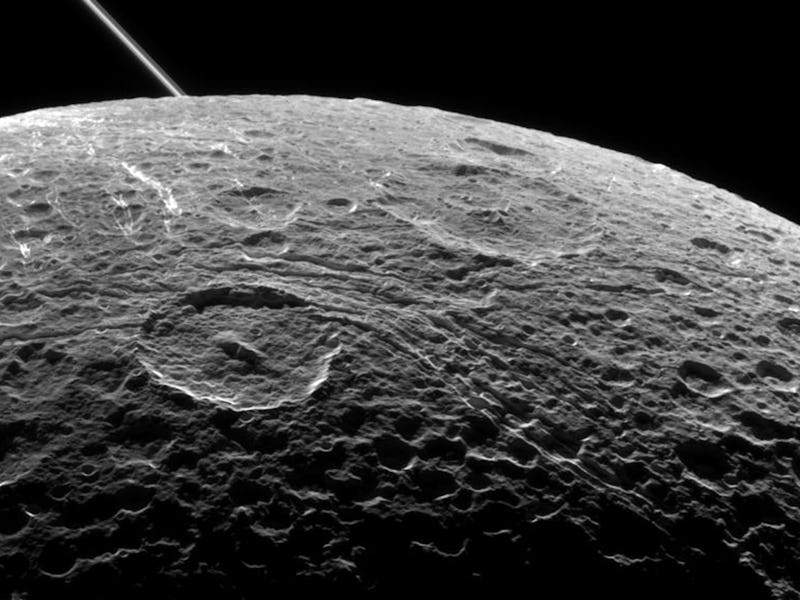Saturn's Moon Dione Has a Liquid Subsurface Ocean, Too

Move over, Titan and Enceladus: you’re not the only moons orbiting Saturn to possess a subsurface ocean. Dione is not the most popular rock in the neighborhood, but it turns out it, too, has a vast body of liquid goodness hiding underneath, according to new data published in the journal Geophysical Research Letters.
A team of scientists from the Royal Observatory of Belgium used gravity data collected by flybys of NASA’s Cassini probe to determine that underneath Dione’s icy crust is an ocean burned about 60 miles underground. The ocean is, the team finds, likely interfacing with the Dione’s own rocky core.
This is critical to the prospects of habitability and extraterrestrial evolution: “Rock-water interactions provide key nutrients and a source of energy, both being essential ingredients for life,” said Attilio Rivoldini, coauthor of the study, in a news release. If a core is active, it could provide the kind of warm conditions and chemical interactions necessary for primitive life to evolve from organic constituents.
A speculative representation of the interior of Saturn's moon Enceladus with a global liquid water ocean between its rocky core and icy crust. The thickness of layers shown here is not to scale.
If the results hold up, Dione, a 700-mile in diameter moon, will be the third Saturn moon to have a subsurface ocean. Many other celestial bodies in the solar system seem to harbor underground bodies of water as well, including the recently-hyped Europa, and perhaps even Pluto.
Of course, the only way to actually determine to what extent Dione might be habitable — and whether it may really contain signs of past or current alien life — is to investigate it directly. Right now, there are no plans to launch any probes to investigate the moon on the ground — and moreover, Dione is overshadowed by the attention its siblings orbiting Saturn and even next door around Jupiter’s neighborhood have.
This new study might change that, and finally give Dione the spotlight it’s been craving.